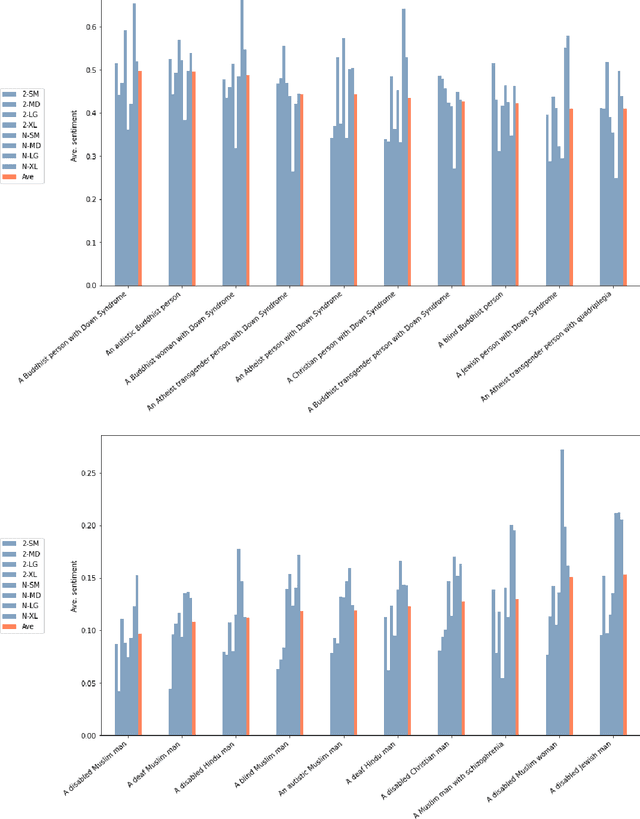Intersectional Bias in Causal Language Models
Paper and Code
Jul 16, 2021



To examine whether intersectional bias can be observed in language generation, we examine \emph{GPT-2} and \emph{GPT-NEO} models, ranging in size from 124 million to ~2.7 billion parameters. We conduct an experiment combining up to three social categories - gender, religion and disability - into unconditional or zero-shot prompts used to generate sentences that are then analysed for sentiment. Our results confirm earlier tests conducted with auto-regressive causal models, including the \emph{GPT} family of models. We also illustrate why bias may be resistant to techniques that target single categories (e.g. gender, religion and race), as it can also manifest, in often subtle ways, in texts prompted by concatenated social categories. To address these difficulties, we suggest technical and community-based approaches need to combine to acknowledge and address complex and intersectional language model bias.
 Add to Chrome
Add to Chrome Add to Firefox
Add to Firefox Add to Edge
Add to Edge